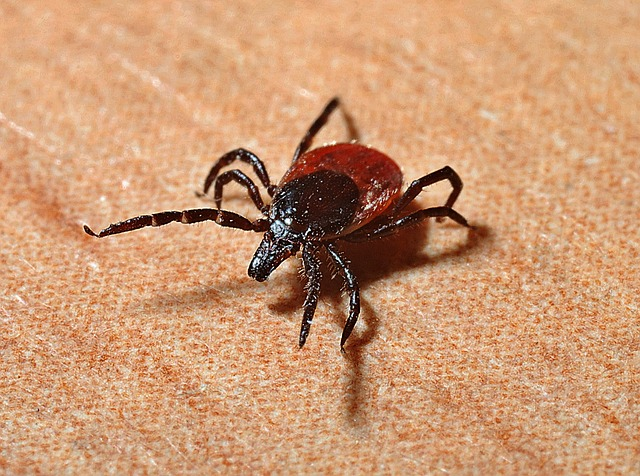Fleas Ticks
Introduction
Keeping your beloved pets healthy and free from fleas and ticks is a top priority for any responsible pet owner. These pesky parasites not only cause discomfort to your furry friends but can also pose significant health risks. In this comprehensive guide, we will provide you with essential information and practical tips to help you prevent and treat flea and tick infestations, ensuring the well-being of your pets.

Understanding Fleas and Ticks
What Are Fleas?
Fleas are small, wingless insects that feed on the blood of mammals and birds. They are known for their jumping ability, which allows them to move quickly between hosts. Fleas can cause intense itching, allergic reactions, and even transmit diseases.
What Are Ticks?
Ticks, on the other hand, are arachnids that belong to the same family as spiders. They have flattened, oval-shaped bodies and attach themselves to the skin of animals to feed on their blood. Ticks are capable of transmitting various diseases, including Lyme disease and Rocky Mountain spotted fever.
Prevention Tips
1. Regular Pet Grooming
- Frequent Brushing: Regularly brush your pets’ fur to remove any fleas or ticks that may be hiding. This helps to detect and eliminate them before they can infest your pet and your home.
- Bathing: Use a mild pet shampoo formulated to kill fleas and ticks. Ensure that you thoroughly lather and rinse your pet, paying close attention to hard-to-reach areas such as the neck, armpits, and belly.
2. Flea and Tick Control Products
- Topical Treatments: Consult with your veterinarian to choose a suitable topical treatment that can be applied directly to your pet’s skin. These treatments effectively kill fleas and ticks and provide long-lasting protection.
- Oral Medications: Oral medications, prescribed by your veterinarian, are another effective option for controlling fleas and ticks. These medications work by disrupting the parasites’ life cycle.
3. Environmental Management
- Regular Cleaning: Vacuum your home regularly, paying particular attention to areas where your pets spend the most time. This helps remove flea eggs, larvae, and adult fleas from your carpets and furniture.
- Washing Pet Bedding: Launder your pet’s bedding frequently using hot water to kill any fleas or ticks present.
- Yard Maintenance: Keep your yard well-maintained by regularly mowing the lawn, trimming bushes, and removing any debris where fleas and ticks might hide.
4. Tick Prevention Outdoors
- Avoid Tick-Infested Areas: When walking your pets, try to avoid areas with tall grass, wooded areas, and shrubs, as these are prime habitats for ticks.
- Tick Repellents: Apply tick repellents specifically designed for pets to create an additional barrier against ticks. Consult your veterinarian for suitable products.
Treatment Options
1. Flea and Tick Medications
- Prescription Treatments: If your pet already has a flea or tick infestation, consult your veterinarian for prescription-strength treatments. These medications are designed to eliminate existing infestations and prevent future ones.
2. Flea and Tick Shampoos
- Medicated Shampoos: Medicated flea and tick shampoos can provide immediate relief by killing parasites on contact. Follow the instructions carefully when using these shampoos to ensure the safety and effectiveness of the treatment.
3. Flea and Tick Collars
- Collars: Flea and tick collars are another options for long-term protection. These collars release chemicals that repel and kill fleas and ticks for an extended period. Choose appropriate collars for your pet’s size and follow the manufacturer’s instructions.
4. Professional Pest Control
- Seeking Veterinary Advice: In severe infestations or cases where home treatments are not effective, consult your veterinarian for professional pest control options. They can recommend safe and effective treatments tailored to your pet’s specific needs. Most importantly call Flatline Pest Control.
Lyme Disease
Tick Bites
You can find adult fleas from any animal that can bring them into your home. You could look for flea feces or if you have irritating bites, it would best to call a Pest control professional. Rocky Mountain spotted fever, flea allergy dermatitis, and tick-borne diseases are serious health concerns caused by flea infestations. Female fleas lay eggs that develop into flea larvae, while adult fleas spend most of their time feeding and reproducing. Don’t overlook the presence of flea dirt as it indicates an infestation.
Conclusion
Protecting your pets from fleas and ticks is crucial for their health and well-being. By following the prevention tips mentioned in this guide, such as regular grooming, using flea and tick control products, practicing proper environmental management, and taking precautions outdoors, you can significantly reduce the risk of infestation. In case of an existing infestation, consult with your veterinarian for appropriate treatment options to ensure effective and safe eradication. Remember, a proactive approach is critical to keeping your furry companions happy, healthy, and free from fleas and ticks.
